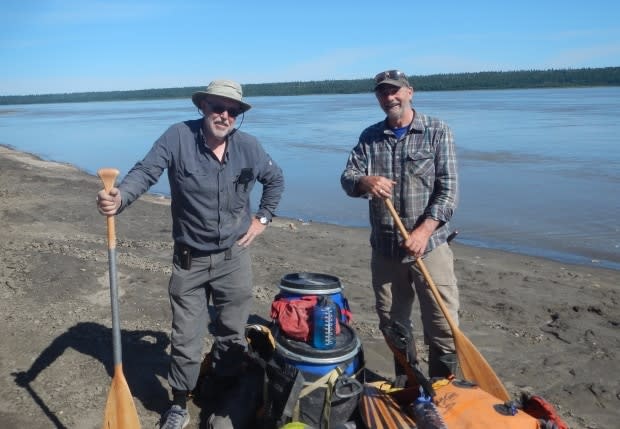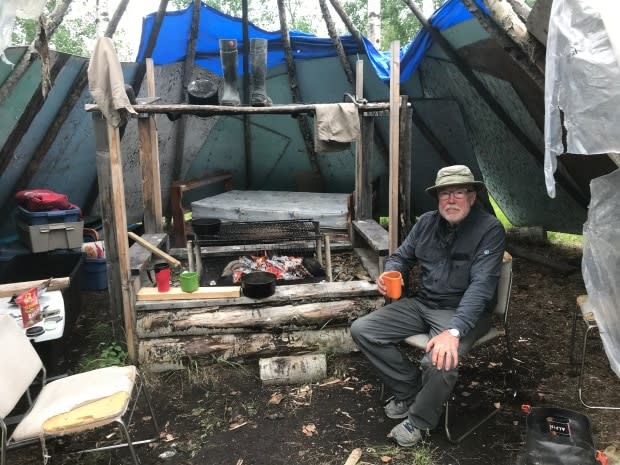Bears, rivers, and blisters: Friends from St. John's complete epic 2,700-km journey

The scenery in Western Canada can be breathtaking, but many of us experience it from the comfort of an airplane cabin or a car.
Herman Perry, 69, and Paul Snow, 63, took a different approach. The pair — both from St. John's — chose to travel a 2,700-kilometre distance from La Loche, Sask., to Tsiigehtchic, N.W.T., on foot and by canoe, setting out in mid-June and journeying for 53 days.
"It was a challenge," said Perry.
"The packs were about 80-plus pounds, The canoe … was about 85 pounds, so it was some fairly good loads," said Snow.
The pair experienced the highs and lows of low-tech travel, encountering bears and friendly humans on the way to their destination. When all 2,700 kilometres were behind them, Perry wasn't satisfied. "There's no reason that I couldn't do an equally extensive canoe expedition next summer," he said.
I've seen quite a number of bears in my life, but nothing like this. - Herman Perry
That's not to say that the journey was a breeze.
"It was 30-plus degrees, a very hot summer. Beautiful. We swam a whole lot, but in the process I think we half-cooked our feet and blistered them badly. It's not bad if you're just carrying your own weight, but if you're carrying 80 pounds on your feet, it's just a little more of a challenge," said Perry.
They weren't alone on the trail, and the reception to two travellers making their way through the wilderness was positive overall. Perry and Snow ran into fellow travellers and aboriginal peoples hunting moose in the forests.

The wildlife could be a little less welcoming, however.
"We actually saw the biggest black bears.… I've seen quite a number of bears in my life but nothing like this. A black bear, about 800 pounds, that came out of the woods," Perry said.
"He started to circle and circle, about two-thirds of the way around us, and kept getting closer and closer and closer until it decided to squat on the ground and started digging the ground. It's probably trying to tell us that that's his turf, not ours," said Snow.
"It was obviously an old fella.… He just sat down and very casually looked at us like we were not a factor in his decisions, and began rooting around in an old campfire looking for any scraps of food that would have been there and he just kind of ignored us.… He did eventually go away."
After the men shot off a few blank rounds from a 12-gauge, the bear stopped bothering them. Aside from that sort of occasional terror, being close to nature was a spiritual experience for the pair.
The Amazon people talk about the rivers as being alive - and they're arteries and something that's living. - Paul Snow
"I was talking to somebody who had been down the Amazon, and they said that the Amazon people talk about the rivers as being alive, and they're arteries and something that's living," said Snow.
"They say that white people talk about the rivers as highways and transportation routes. So I thought that was interesting. And that's how you feel when you're on the river.… You feel the energy of it. It's an energy vibe."
The two weren't sick of each other after the long voyage. Although it may be too soon to tell, they won't rule out hitting the open trail one more time.
"I still feel in good health," said Perry.
Snow is up for another adventure, too.
"Never say never, is what I say."
Read more from CBC Newfoundland and Labrador


